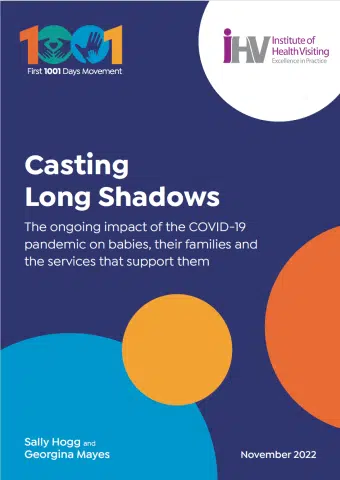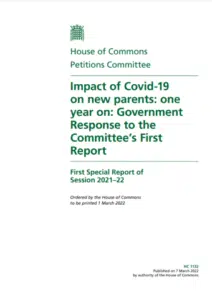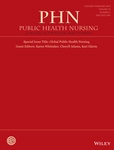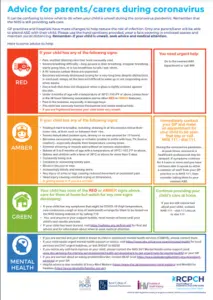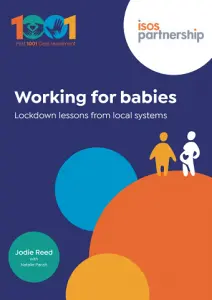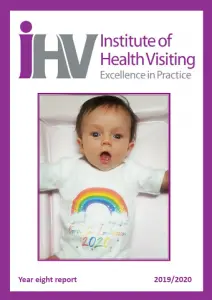The ongoing impact of the COVID-19 pandemic on babies, their families and the services that support them.
A brand-new report by the First 1001 Days Movement and the Institute of Health Visiting has been published today – ‘Casting Long Shadows: The ongoing impact of the COVID-19 pandemic on babies, their families and the services that support them.’
The report reveals worrying new statistics about babies and young children born or growing up through the COVID-19 pandemic, highlighting how more young children are at risk of harm, have delayed social skills, and have been affected by poor parental mental health.
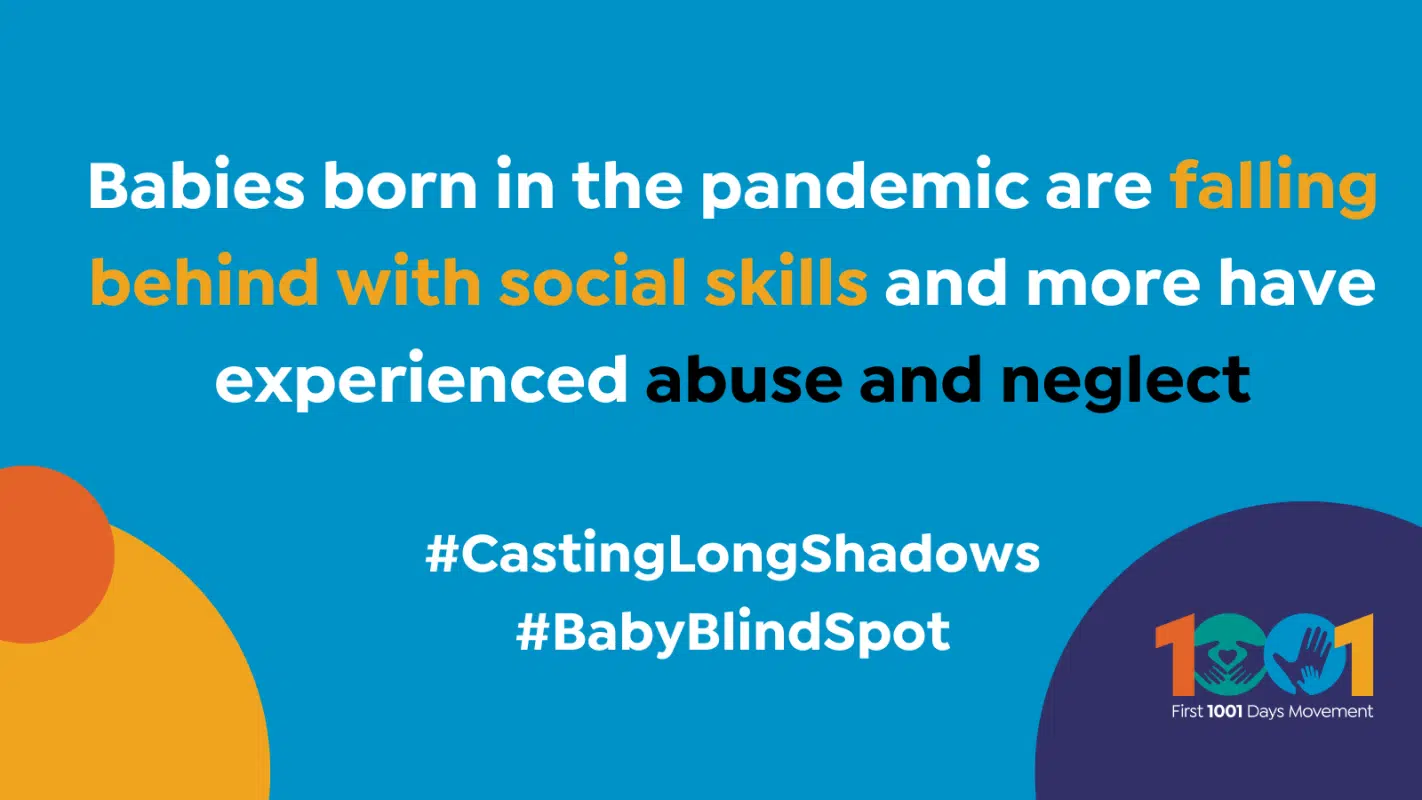
The report findings were synthesised from evidence in recently published reports, research and national data, as well as analysis from a national survey of 555 professionals and volunteers who work with babies and their families in health visiting, mental health, maternity, early education, and other services.
The findings are compelling and are consistent with a whole raft of studies from multiple sources across the children’s sector, which all indicate that the wide-reaching impacts of the pandemic are far from over for our youngest members of society:
- An alarming 94.8% of professionals say the pandemic has an ongoing negative or very negative impact on the personal and social skills of children who were living in the pandemic. 92.4% of professionals say the same for communication, speech, and language skills and for emotional wellbeing and development.
- Almost half (42.7%) of respondents surveyed stated that “many” babies they work with are affected by parental anxiety, stress, or depression due to the pandemic, which is affecting bonding and responsive care.
- More than 4 in 10 (44.1%) of respondents said that “many” of the babies they work with are currently affected by increased exposure to domestic conflict, child abuse and neglect.
- 4 in 10 (40.4%) survey respondents reported “many” babies they worked with had been affected by the loss of family income or increased risk of food poverty.
The report also highlights how:
- Services have not returned to normal, and this could impact future generations – Whilst there has been innovation in service provision, nearly 6 in 10 respondents (59.5%) who reported that their service was operating differently, told us that the changes were not beneficial for families.
- Services are in ‘crisis’ – The pandemic exacerbated existing strains on services. A significant number of survey respondents raised issues relating to low staffing numbers and poor staff wellbeing, with some professionals talking about services being in “crisis”.
- The majority of respondents (90.5% in England) did not feel that national or local governments had taken sufficient action to ensure that babies under two and their families receive the support they need to recover from the impact of the pandemic.
With so much compelling evidence, The First 1001 Days Movement and Institute of Health Visiting are calling for:
- National Government to take concerted action to address the impacts of the pandemic on our youngest children.
- Integrated local strategies are needed to ensure that all children have the best start in life.
- National Governments must have long-term child health and development strategies, supported by workforce plans.
- Clear leadership within the UK Government is needed to ensure policy decisions include a cross-government focus on the needs of babies and young children. To ensure that this does not fall in the gaps between departments, a cabinet member should be appointed to drive this forward and act now to mitigate the impacts of the pandemic on our youngest citizens.
Alison Morton, iHV Executive Director, said:
“This report helpfully pulls together the unequivocal evidence that the pandemic’s impacts on our babies and young children have been significant and demand much greater attention from policy makers. What happens during these critical earliest years of life really does matter as they lay the foundations for future health and wellbeing. Yet, the report paints a bleak picture for babies in the UK. Too many are missing out on vital early support that can make such a difference. Ignoring this growing problem of unmet need and avoidable harms is short-sighted and will prove more costly in the long run.”
Georgina Mayes, Policy and Quality Lead at the Institute of Health Visiting, said:
“This new report clearly shows that the pandemic is having a lasting impact on many children’s health, wellbeing and development, and on the ability of services to meet their needs. More children are falling behind, inequalities are widening, and some services are reaching a crisis point. Whilst many professionals are working hard to support the families that they work with, this report clearly shows that demand is outstripping the workforce’s capacity to meet the scale of need.
“We call on national and local governments across the UK to take the findings of this research seriously and act now to mitigate the impact of the pandemic on our youngest children’s lives and life chances.”


